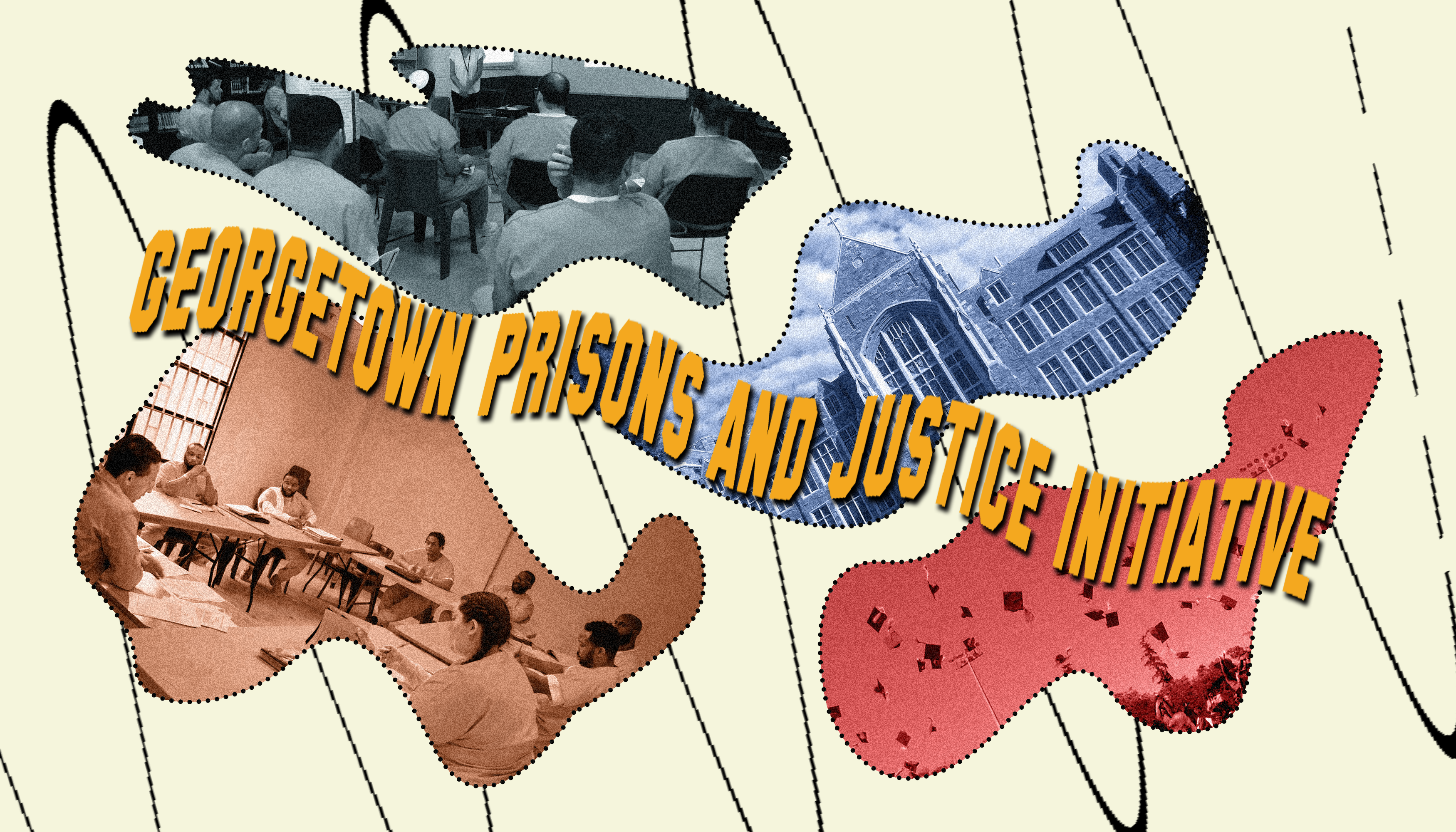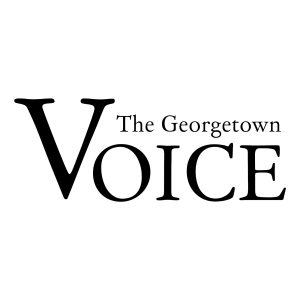When Professor Marc Howard (L ’12) began teaching at a prison, he witnessed how hard students were working for a certificate that didn’t even give college credit—sometimes with better results than his main campus Georgetown students in the same class.
Now, a diploma is in sight for those students. After five years of operation, Georgetown’s Prisons and Justice Initiative (PJI) will be offering bachelor’s degrees to incarcerated students in Maryland. The new bachelor’s degree program comes as an extension of the Prison Scholars Program (PSP), an educational opportunity within the PJI that began offering credit-bearing and non-credit-bearing classes through the D.C. Jail in 2018.
The United States incarcerates more people than any other country in the world, and, according to a 2016 report, in 12 states, over half the prison population is Black due to systemically racist policing and incarceration systems. Maryland, a state that is only 29 percent Black in demography as of 2014, topped that list with Black people making up 72 percent of its prison population. Maryland’s overall incarceration rates stand out on an international scale, exceeding the rates of the United Kingdom, France, Canada, and other countries.
Since the DMV exemplifies the racially disproportionate impact of the U.S. justice system, Howard founded the PJI in 2016 to respond to mass incarceration and high rates of recidivism (when convicted individuals re-offend), as well as the maltreatment of incarcerated people in the United States. The PJI was also formed in part to reduce racial disparities in education after Georgetown’s own history of enslavement.
“People who are incarcerated have extraordinary talent, skills, intelligence, yet they’ve been essentially wiped away, forgotten, abandoned by society because of mistakes that they made a long time ago,” Howard said.
The new degree program will operate at Patuxent Institution, a facility based in Jessup, Maryland, that has been commissioned as a treatment facility run by a psychiatrist, rather than as a standard correctional facility. Over the course of a five-year program, incarcerated students can graduate with a Georgetown degree and receive recognition for the work they’ve done.
“We’re really dedicated to rewarding students for doing the same work and rewarding them in the same way,” Howard added. “We feel that they are Georgetown students.”
To launch the Maryland bachelor’s degree program, the PJI coordinated with all of Georgetown College’s departments and programs to design its majors. PJI Director of Education Joshua Miller sought out help from across the school and received unanimous support from each department.
“Everybody jumped on board and we launched a new degree with three new majors basically from March to December, and in university time that’s unprecedented,” Miller said. “It takes years to get new majors off the ground, but the entire university just said, ‘Hey, there’s a pandemic going on but you know what we can do? We can do this.’ And so we did.”
The bachelor’s degree program will allow students to major in one of three interdisciplinary fields of study: cultural humanities, interdisciplinary social science, or global intellectual history. Students will complete a set of core requirements, along with the courses required for their major, and must achieve 120 credit hours to graduate. Cultural humanities majors can take courses in comparative literature and theater, interdisciplinary social science majors can take courses in psychology and government, and global intellectual history majors in subjects like history and philosophy.
“What’s it going to be like? It’s going to be like being a Georgetown student,” Miller said. “We’re trying to offer everything Georgetown offers.”
This won’t be the first time the PJI has brought Georgetown coursework into prison classrooms. Olúfẹ́mi Táíwò, a philosophy professor, has taught a few formal classes, including Introduction to Political Philosophy, in the D.C. Jail.
For Táíwò, experiences teaching within the prison system have shaped some of his views on education. While he’d heard about the school-to-prison pipeline, it was another thing to directly see the failure of social systems to support Americans.
“It’s one thing to think in the abstract about different ways our education system could be set up and different ways that the current setup disadvantages some people,” Táíwò said, “And it’s another thing to go into an institution where you have students who are in very different circumstances than your other students, who are in cages.”
According to Táíwò, the students bring experiences and topics to class that are very different from those of most main campus Georgetown students. “It’s been a really high-level intellectual environment that I’ve found going on in those rooms and in those discussions,” Táíwò said.
The graduates of this program will have the opportunity to be leaders in ending mass incarceration, informed by their own personal experiences. Graduates of the PSP and Pivot Program, a PJI program offering certificates of business and entrepreneurship for formerly incarcerated individuals, are already leading voices pushing for institutional prison reform.
Tyrone Walker, a Pivot Program fellow who graduated in the first cohort, has been working in justice reform since his release.
“Ten to 12 years ago, prison reform wasn’t as popular as it is today with people who were formerly incarcerated,” Walker said. “Now, with prison reform, they say you don’t have anyone on your team that’s been directly impacted by the criminal justice system, then your team is really incomplete.”
Walker took classes through PSP with Miller, who encouraged him to join the Pivot Program upon his release from the D.C. Jail. Through the program, Walker interned for the Justice Policy Institute, where he was subsequently offered a full-time job. Now, Walker is returning to Georgetown as the Director of Reentry Services at PJI.
“Because of my personal experience, I was able to really inform the work at the Justice Policy Institute,” Walker said. “To be able to give back to that and know that you played a part in helping people, to relieve these ills that they’re suffering from, is invaluable.”
There are roughly 18,000 incarcerated individuals in the state of Maryland, according to Miller, and the degree program is going to run state-wide admissions, allowing individuals in any facility the chance to apply. Those who are admitted into the program will be transferred to Patuxent. According to Miller, the program is highly anticipated, meaning a high volume of incarcerated individuals are expected to apply for about 25 spots.
“It will probably have an acceptance rate below the Georgetown main campus,” he said.
The opportunity to achieve a college education, and a degree from Georgetown, is a game-changer for those who have been incarcerated, Walker said. There is a perception that programs like this give individuals a second chance, but for many it’s their first.
“A lot of us had aspirations of going to college. I know I did, but didn’t know how I was going to get there,” he said. “To be in that classroom space and to be able to receive an education, it takes you on another side of life that most of us have never lived.”




